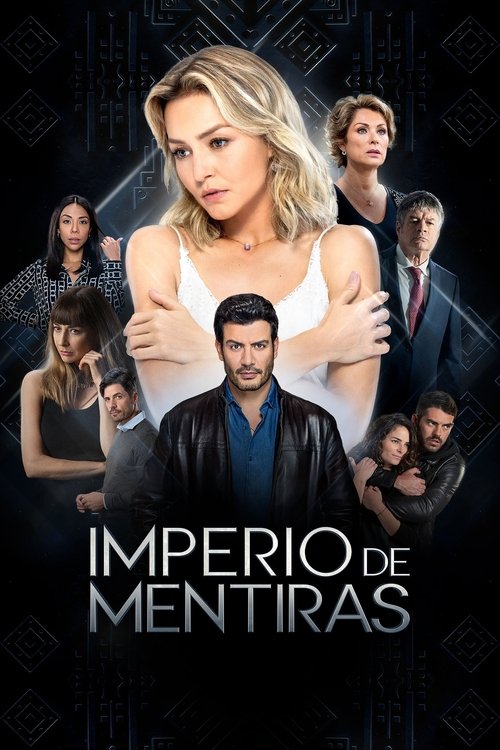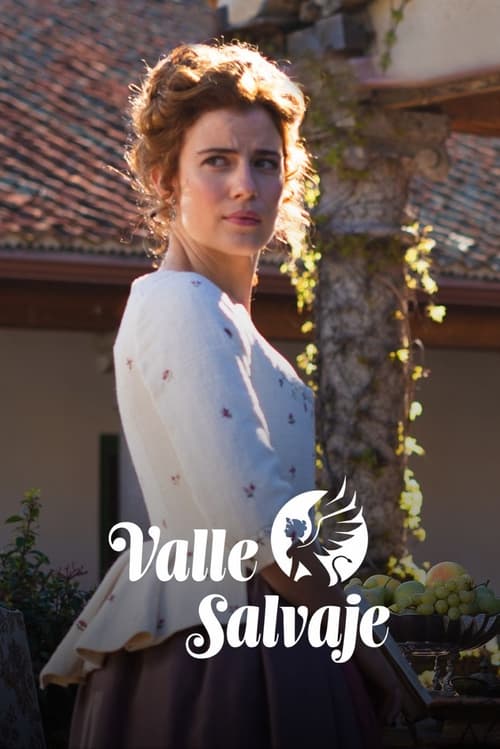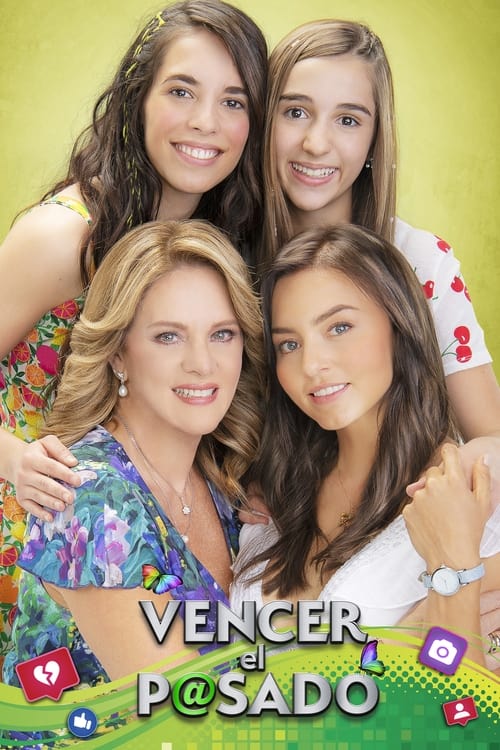
Ask Your Own Question
What is the plot?
In "Vencer la ausencia," the story begins with the introduction of the main character, a young woman named Valeria, who is grappling with the sudden disappearance of her mother, a well-known singer. The emotional weight of her absence is palpable, as Valeria navigates her daily life filled with unanswered questions and a deep sense of loss. The narrative quickly establishes Valeria's strained relationship with her father, who is emotionally distant and struggles to cope with the situation.
As Valeria seeks closure, she discovers a series of old letters hidden in her mother's belongings. These letters hint at a secret life her mother led, filled with unfulfilled dreams and hidden relationships. Intrigued and desperate for answers, Valeria decides to investigate further, leading her to confront her father's reluctance to discuss her mother's past. This confrontation reveals layers of grief and unresolved tension between them, setting the stage for their evolving relationship.
Valeria's journey takes her to various locations that were significant to her mother, including a music studio where her mother recorded her last album. Here, she meets a group of her mother's former colleagues, who share stories that paint a more complex picture of her mother's life. Valeria learns about her mother's struggles with fame, personal sacrifices, and the impact of her choices on those around her. This deepens Valeria's understanding of her mother, but also complicates her feelings of resentment and admiration.
In a pivotal moment, Valeria discovers that her mother had a close friend, a man named Diego, who was more than just a confidant. This revelation leads Valeria to confront Diego, who is now a struggling musician. Their meeting is charged with emotion as Diego reveals the depth of his relationship with Valeria's mother, including a romantic connection that Valeria had never known about. This encounter forces Valeria to reevaluate her perception of her mother and the choices she made.
As Valeria continues her search for answers, she uncovers a hidden truth: her mother had been involved in a controversial incident that led to her abrupt departure from the music scene. This incident involved a betrayal by someone close to her, which not only affected her career but also her personal life. Valeria's determination to uncover the truth intensifies, leading her to confront the people involved in the incident, including her mother's former manager.
The tension escalates when Valeria learns that her mother had been planning a comeback, which was thwarted by the betrayal. This revelation ignites a fire within Valeria, who decides to honor her mother's legacy by organizing a tribute concert. She enlists the help of Diego and her mother's former bandmates, who are initially hesitant but eventually come together to support Valeria's vision.
As the concert approaches, Valeria faces numerous challenges, including her father's disapproval and the emotional toll of revisiting her mother's past. However, she remains resolute, driven by a desire to celebrate her mother's life and music. The night of the concert arrives, and the atmosphere is electric. Valeria performs a song that her mother had written, pouring her heart into the performance, which resonates deeply with the audience.
During the concert, Valeria's father unexpectedly shows up, leading to a poignant moment of reconciliation between them. He expresses his regret for not being more supportive and acknowledges the pain they both share. This moment of vulnerability allows them to begin healing their fractured relationship.
The concert concludes with a powerful tribute to Valeria's mother, leaving the audience in tears. Valeria feels a sense of closure, having not only honored her mother's memory but also forged a new bond with her father. The story ends on a hopeful note, with Valeria looking towards the future, empowered by the strength of her mother's legacy and the connections she has rebuilt.
What is the ending?
In the ending of "Vencer la ausencia," the main characters confront their past traumas and find a path toward healing and reconciliation. The story culminates in a series of emotional confrontations and revelations that allow the characters to move forward in their lives.
As the final episodes unfold, we see the characters grappling with their unresolved feelings and the impact of their choices. The central theme of absence and loss is poignantly addressed as they seek closure. The series concludes with a sense of hope, as the characters begin to rebuild their lives and relationships, embracing the possibility of a brighter future.
The final scenes of "Vencer la ausencia" unfold with a palpable tension, as the characters are drawn together by the weight of their shared history.
Scene 1: The Reunion The episode opens in a dimly lit room, where the main characters--Valeria, her mother, and her estranged sister--gather for a long-awaited reunion. The air is thick with unspoken words and lingering resentment. Valeria, visibly anxious, fidgets with her hands, her heart racing as she prepares to confront the pain of their past. Her mother, with tears in her eyes, struggles to find the right words, while her sister stands aloof, arms crossed, a defensive posture that speaks volumes about their fractured relationship.
Scene 2: Confrontation As the conversation unfolds, emotions erupt. Valeria's sister accuses her of abandoning the family during their darkest times, while Valeria counters with her own feelings of betrayal and neglect. The camera captures the rawness of their emotions--the tears streaming down Valeria's face, the clenched fists of her sister, and the sorrowful gaze of their mother, who feels the weight of their conflict. This confrontation serves as a cathartic release, allowing them to express years of pent-up frustration and hurt.
Scene 3: The Revelation In a pivotal moment, Valeria reveals a secret that has haunted her for years--her feelings of inadequacy and the burden of expectations placed upon her. The revelation shifts the dynamic in the room, as her sister begins to soften, realizing that Valeria's struggles were not as distant as she had thought. The mother, overwhelmed with guilt, acknowledges her own shortcomings and the impact they had on her daughters. This moment of vulnerability opens the door to understanding and forgiveness.
Scene 4: The Healing As the scene progresses, the atmosphere begins to change. The characters start to embrace their shared pain, recognizing that they are stronger together. They share stories of their individual struggles, laughter mingling with tears as they reminisce about happier times. The camera pans out, capturing the warmth of their connection as they begin to heal old wounds. The emotional weight of their past starts to lift, replaced by a sense of unity and hope.
Scene 5: Moving Forward In the final moments, we see Valeria stepping out into the sunlight, a symbolic gesture of her newfound freedom. She takes a deep breath, her face illuminated by the warmth of the sun, representing a fresh start. Her sister follows suit, and they walk side by side, a tentative but hopeful bond forming between them. Their mother watches from the doorway, a smile breaking through her tears, signifying her acceptance and support.
Scene 6: The Future The series concludes with a montage of the characters moving forward in their lives. Valeria pursues her dreams with renewed vigor, her sister begins to mend her own relationships, and their mother finds solace in her role as a supportive figure. The final shot lingers on the three of them together, laughing and embracing, a powerful image of resilience and the enduring strength of family.
In the end, "Vencer la ausencia" leaves viewers with a poignant message about the importance of confronting one's past, the power of forgiveness, and the possibility of healing through connection. Each character's journey culminates in a sense of hope, suggesting that while absence can create pain, it can also pave the way for deeper understanding and love.
Is there a post-credit scene?
In "Vencer la ausencia," there is no post-credit scene. The series concludes with a powerful and emotional finale that wraps up the main storylines and character arcs. The focus remains on the resolution of the characters' struggles and the themes of loss, resilience, and the importance of family. The final moments emphasize the characters' growth and the hope for a brighter future, leaving viewers with a sense of closure rather than additional scenes after the credits.
What are the main character's motivations throughout the series?
The main character, Valeria, is driven by her desire to uncover the truth about her missing husband, which leads her on a tumultuous journey filled with emotional turmoil and self-discovery. Her motivations evolve as she grapples with feelings of betrayal, love, and the need for closure.
How does Valeria's relationship with her family change during the series?
Valeria's relationship with her family becomes strained as her obsession with finding her husband takes precedence over her familial duties. Tensions rise, particularly with her mother, who fears for Valeria's safety and emotional well-being, leading to confrontations that reveal deep-seated fears and unresolved issues.
What role does the character of Emiliano play in Valeria's journey?
Emiliano serves as both a confidant and a source of conflict for Valeria. His unwavering support provides her with strength, but his own secrets and past complicate their relationship, forcing Valeria to confront her feelings of trust and vulnerability.
How does the theme of loss manifest in the character arcs?
Each character experiences loss in different ways, from Valeria's search for her husband to her friends dealing with their own personal tragedies. This theme is visually represented through flashbacks and poignant moments that highlight their emotional struggles, ultimately leading to growth and resilience.
What pivotal events lead to the climax of Valeria's search for her husband?
Key events include Valeria discovering a hidden letter that hints at her husband's possible whereabouts, a confrontation with a mysterious figure from his past, and a series of flashbacks that reveal the truth about their relationship. These moments build tension and propel Valeria toward a dramatic confrontation that tests her resolve.
Is this family friendly?
"Vencer la ausencia," produced in 2022, is a telenovela that delves into themes of family, loss, and emotional struggles. While it is designed to appeal to a broad audience, including families, there are several aspects that may be considered objectionable or upsetting for children or sensitive viewers.
-
Themes of Loss and Grief: The show prominently features characters dealing with the absence of loved ones, which can evoke strong emotions related to loss and mourning.
-
Family Conflict: There are intense scenes of family disputes and emotional confrontations that may be distressing for younger viewers.
-
Mental Health Struggles: Characters experience significant emotional turmoil, including anxiety and depression, which may be challenging for sensitive audiences to watch.
-
Romantic Tensions: The show includes complex romantic relationships that may involve jealousy, betrayal, and heartbreak, which could be inappropriate for younger viewers.
-
Dramatic Situations: There are moments of high drama that may include arguments, tears, and emotional breakdowns, which could be overwhelming for some.
Overall, while "Vencer la ausencia" can be engaging and thought-provoking, it contains elements that may not be suitable for all children or sensitive individuals. Viewer discretion is advised.






























